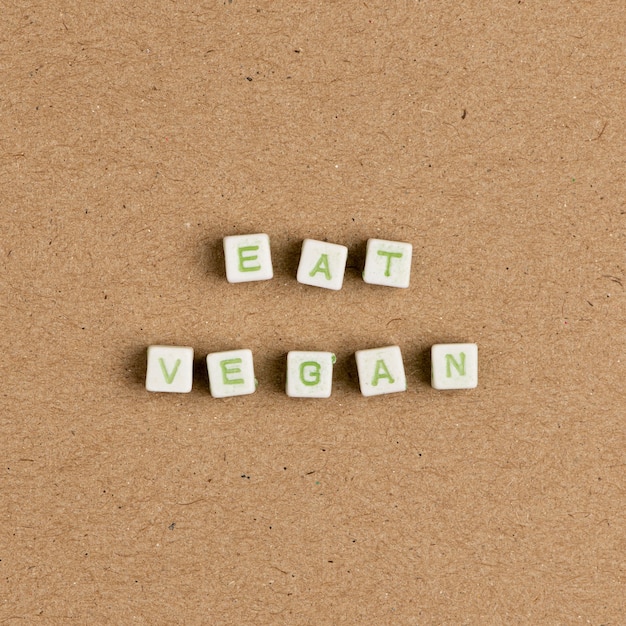
Did you give Veganuary a try this year? Maybe you’re considering going vegan or making plant-based eating a permanent part of your life? Dr. Gemma Newman has some great advice for you.
There are so many diets out there—low fat, high fat, low carb, high carb, vegan, paleo, keto—it’s easy to get lost. But which ones actually work? And, more importantly, which one is the best for you?
Veganuary is gaining momentum every year. In 2018, 170,000 people joined, which was a huge jump from the previous year. By last year, the number had climbed to over 250,000, and it’s likely even higher this year.
But is a vegan diet actually healthy? What sets it apart from all the other diets we hear about?
There’s a lot of confusion about nutrition, partly thanks to the media, food companies, and sometimes even health professionals. However, it’s hard to argue against the benefits of eating lots of vegetables and fruits, cutting down on processed foods, sugary treats, fizzy drinks, and refined grains. Eating these whole, unprocessed foods can do wonders.
People often fall back on the idea of “everything in moderation” when they’re unsure what’s healthy. But we wouldn’t tell smokers to smoke in moderation, would we? The same logic applies to sugary drinks and processed meats. The World Health Organization labels processed meats as a class 1 carcinogen, meaning they’re known to cause cancer. So moderation isn’t an excuse.
Dr. David Katz from the American College of Lifestyle Medicine brought together top nutrition scientists to form the ‘True Health Initiative,’ which found that a diet rich in vegetables, fruits, beans, nuts, seeds, whole grains, and water is key to good health. Whether you’re looking at a paleo plate or a whole food, plant-based plate, they have a lot in common compared to the average Western diet.
Heart disease is still our biggest killer, and the only diet proven to reverse coronary artery blockages within weeks is a whole food, plant-based diet. This was shown in the Lifestyle Heart Trial published in 1990 and has been replicated in subsequent studies.
Switching to a plant-based diet might seem tough, especially if you’re used to a typical Western diet. Kudos to those sticking to Veganuary! But don’t worry, Dr. Newman has some tips to help you get started.
If you’re new to plant-based eating, consider starting with some cookbooks. “So Vegan in 5” by Roxy Pope and Ben Pook offers over 100 simple recipes using just five ingredients each. “BOSH!” by Henry Firth and Ian Theasby also has over 80 healthy vegan recipes and is a great resource.
An easy way to start is by modifying your favorite meals. Turn a chicken curry into a chickpea curry, make a lentil Bolognese instead of beef, or a three-bean chili instead of a meat-based one. Transitioning slowly can make the process enjoyable rather than overwhelming.
Begin by making your breakfast plant-based a few times a week, then do the same with lunch. Gradually increase your plant-based meals until they become a regular part of your routine. While diving straight into a whole food, plant-based diet can yield quick benefits, your body might need time to adjust, so expect some bloating initially.
Both the American Dietetic Association and the British Dietetic Association agree that well-planned plant-based diets are suitable for all age groups and can help prevent diseases like heart disease and cancer. These diets are also linked to lower risks of respiratory disorders and infections in children.
The British Dietetic Association’s Blue Dot Campaign emphasizes the importance of dietitians offering plant-based diet advice. Our nutrient-depleted world, caused by factors like soil degradation and pesticide use, means a Western diet often lacks essential nutrients like magnesium and folate.
A well-planned whole food plant-based diet can be incredibly nutrient-dense. Dr. Joel Fuhrman’s ‘nutritarian approach’ focuses on avoiding processed foods and choosing nutrient-rich options. However, if you’re excluding all animal products, certain supplements will be necessary.
Vitamin B12 is essential, as it’s hard to get enough from a plant-based diet alone. A daily or weekly supplement can keep you covered. Vitamin D is also crucial, especially if your sunlight exposure is limited. Omega-3 fatty acids (EPA/DHA), usually found in fish, can be obtained from algae supplements.
Incorporating milled flaxseed into your diet can enhance heart health. Sprinkle it on your porridge, salads, or main meals for an extra boost.
Dr. Gemma Newman has spent 15 years in medicine, working in various specialties including elderly care, pediatrics, and general practice. She offers valuable insights into the health benefits of plant-based diets and practical tips to help you make the transition. If you’re ready to improve your diet and health, start exploring plant-based eating today!

